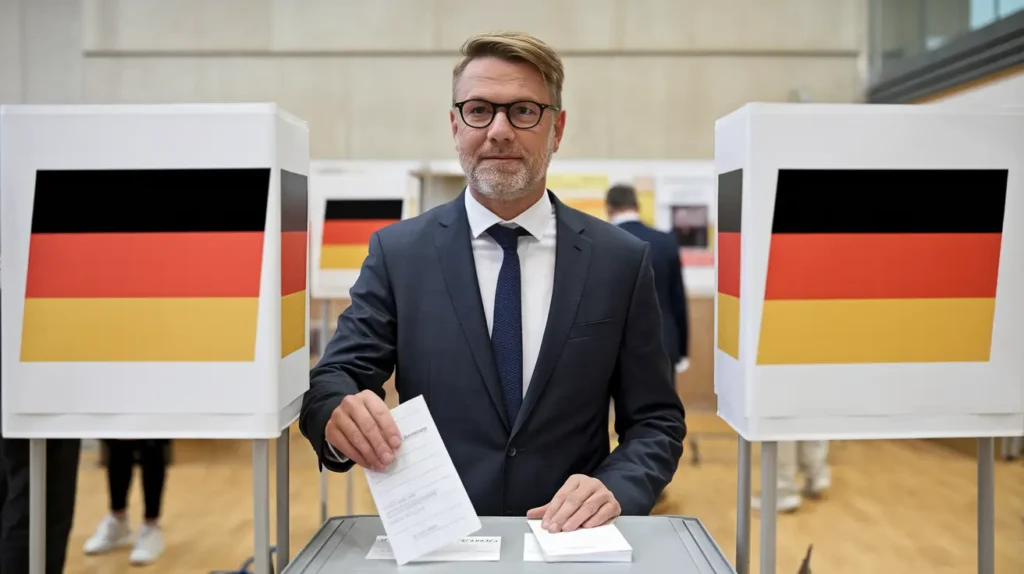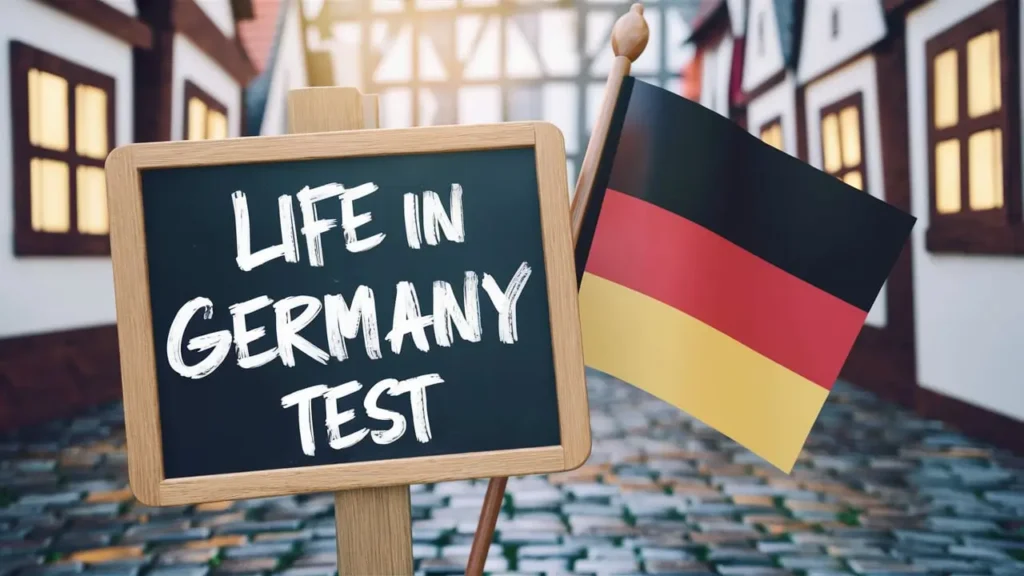Congratulations on becoming a German citizen! As a newly naturalized German, you now have the right and responsibility to participate in the country’s democratic process. Voting for the first time can be both exciting and a bit daunting, especially if you’re not familiar with the German political system. This guide will walk you through everything you need to know about voting in Germany as a first-time voter after naturalization.
Understanding the German Political System
Before we dive into the voting process, it’s essential to have a basic understanding of the German political system.
Germany is a federal parliamentary democracy. The country is divided into 16 states (Bundesländer), each with its own government and parliament. At the federal level, there are two main bodies:
- The Bundestag (Federal Parliament): This is the main legislative body, elected by the people.
- The Bundesrat (Federal Council): This represents the 16 state governments at the federal level.
The head of the government is the Chancellor, who is usually the leader of the party or coalition that holds the majority in the Bundestag. The President is the head of state, but this role is largely ceremonial.
Types of Elections in Germany
As a German citizen, you’ll have the opportunity to vote in several types of elections:
- Federal Elections (Bundestagswahl): Held every four years to elect members of the Bundestag.
- State Elections (Landtagswahl): Each state has its own election cycle, usually every four or five years.
- Local Elections (Kommunalwahl): For city councils, mayors, and other local offices.
- European Parliament Elections: Held every five years to elect Germany’s representatives in the European Parliament.
Registering for Voting in Germany
One of the great things about the system of Voting in Germany is that you don’t need to register to vote separately. When you register your residence (Anmeldung) with the local authorities, you’re automatically added to the voter registry if you’re eligible to vote.
However, it’s a good idea to check that you’re on the voter list, especially after your German naturalization. You can do this by contacting your local election office (Wahlamt) or city hall.
Receiving Your Voting Notification
A few weeks before an election, you’ll receive a Wahlbenachrichtigung (voting notification) in the mail. This document contains important information:
- The date, time, and location of the election
- Your polling station address
- Information on how to request a mail-in ballot (Briefwahl)
Keep this document safe, as you’ll need to bring it with you when you go to vote.
Understanding the Ballot
German ballots can be a bit complex, especially for federal elections. In federal elections, you typically have two votes:
- Erststimme (First Vote): This is for directly electing a candidate to represent your constituency in the Bundestag.
- Zweitstimme (Second Vote): This is for a political party. It determines the overall proportion of seats each party gets in the Bundestag.
State and local elections may have different voting systems, sometimes allowing you to distribute multiple votes among candidates (Kumulieren) or even across parties (Panaschieren).
Researching Candidates and Parties
As a first-time voter, it’s crucial to research the candidates and parties before the election. Here are some resources to help you:
- Wahl-O-Mat: An online tool that helps you compare your political views with those of the parties.
- Party websites and manifestos
- Candidate debates and public forums
- Reputable news sources for analysis and interviews
Remember, as a voter, it’s your responsibility to make an informed decision.
Voting in Person

On election day, follow these steps to cast your vote:
- Bring your Wahlbenachrichtigung and a valid ID (passport or identity card) to your assigned polling station.
- Present your documents to the election officials.
- Receive your ballot(s).
- Go to a voting booth to mark your ballot in private.
- Fold your ballot to keep your vote secret.
- Drop your folded ballot into the ballot box.
Polling stations are typically open from 8:00 AM to 6:00 PM on election day, which is always a Sunday.
Voting by Mail (Briefwahl)
If you can’t vote in person on election day, you can request a mail-in ballot (Briefwahl). To do this:
- Fill out the form on the back of your Wahlbenachrichtigung.
- Send it to your local election office.
- You’ll receive a packet with your ballot and instructions.
- Fill out the ballot, sign the voter’s declaration, and return everything in the provided envelope.
Make sure to send your mail-in ballot with enough time for it to arrive before the polls close on election day.
Understanding Election Results
After the polls close, votes are counted, and preliminary results are usually announced late on election night. However, the final official results may take a few days or even weeks to be certified, especially for federal elections.
In Germany, a party needs to receive at least 5% of the second votes (Zweitstimmen) or win at least three direct mandates to enter the Bundestag. This threshold is designed to prevent the fragmentation of parliament among many small parties.
The Importance of Your Vote
As a newly naturalized citizen, your vote carries the same weight as someone who has been a German citizen their entire life. Your participation is crucial for several reasons:
- Representation: Your vote helps ensure that your interests and those of your community are represented in government.
- Integration: Participating in elections is an important step in fully integrating into German society.
- Shaping policy: Your vote can influence policies that affect your daily life, from education and healthcare to taxes and infrastructure.
- Civic duty: Voting in Germany is not just a right but also a responsibility of citizenship.
Continuing Political Engagement
Voting is just one aspect of political engagement. As a German citizen, you have many opportunities to participate in the democratic process:
- Join a political party
- Attend local council meetings
- Participate in public consultations
- Volunteer for community organizations
- Consider running for office yourself
Remember, democracy is not a spectator sport. Your active participation helps keep the system vibrant and responsive to the needs of all citizens.
Final thoughts
Voting in Germany for the first time as a newly naturalized German citizen is an important milestone in your journey. It’s a tangible symbol of your full membership in German society and your ability to shape the country’s future. While the process might seem complicated at first, with a little preparation, you’ll find that the German voting system is well-organized and accessible.
As you prepare to cast your first vote, take the time to inform yourself about the issues and candidates. Discuss politics with friends, family, and colleagues, but remember that in Germany, your vote is secret – you’re not obligated to tell anyone how you voted.
Take hold of this new right and responsibility—your voice matters, and your vote shapes the future. Welcome to Germany’s democratic process!




